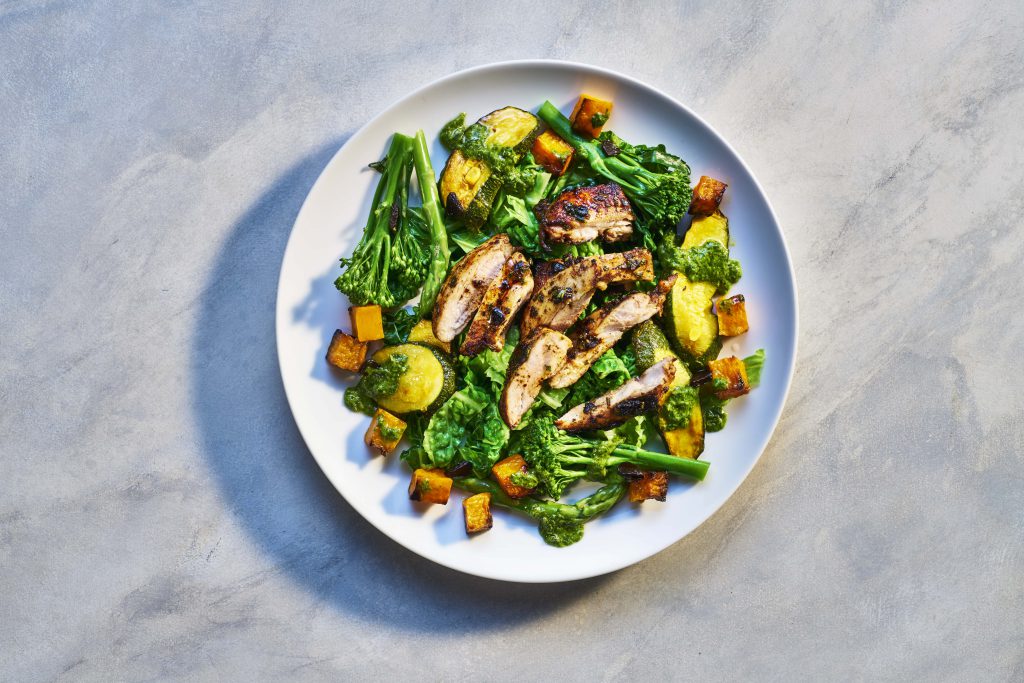

What is magnesium and why do we need it?
Have you ever experienced leg cramps in bed early in the morning or feel fatigued with no explanation? If you have, you might benefit from improving your diet and more specifically upping your intake of magnesium. This precious mineral can be a lifesaver, so we’ve decided to take a closer look at, to help you understand why you need to be making sure you’re getting enough of it in your diet and how you can achieve this with minimal time and effort spent.
Magnesium is a mineral involved in many processes in our body. It regulates the contraction of the muscles, nerve function, blood glucose control and blood pressure and it plays a role in protein and DNA synthesis as well as the structural development of bones. In fact, 50 to 60% of the magnesium levels present in our body can be found in our bones!
“Too much magnesium from food does not pose a health risk.”
What is the recommended daily intake of magnesium?
The recommended intake of magnesium is:
- For men (over 18 years): 300 mg/day
- For women (over 18 years): 270 mg/day
Our kidneys control the magnesium homeostasis; when the magnesium status in our body is high, the kidneys will excrete it through urine, and vice versa, if the dietary intake of magnesium in otherwise-healthy people is low, the kidneys limit urinary excretion of this mineral. For this reason, magnesium deficiency is uncommon for healthy people.
Most of us are able to get the recommended daily requirement with a healthy varied diet. However, a proportion of people with digestive problems, type II diabetes, chronic alcoholism or the use of certain medications can suffer from magnesium deficiency. Low levels of magnesium are usually caused by either reduced absorption of magnesium in the gut itself or increased excretion of magnesium in urine.
Symptoms of deficiency can include nausea, vomiting, fatigue, muscle contractions and cramps, numbness and tingling.
High intakes of magnesium, often from dietary supplements and medications, may cause similar symptoms such as diarrhoea, nausea, and abdominal cramping. However, too much magnesium from food does not pose a health risk.
Which foods contain magnesium?
Magnesium is found naturally in many foods and is sometimes added to some fortified foods. Foods high in fibre often contain a good dose of magnesium, so look out for these!
Foods rich in magnesium:
- Green leafy vegetables (Spinach, Kale, Broccoli, Cabbage)
- Legumes (Peas, Beans, Lentils, Chickpeas)
- Nuts (Almonds, Cashews, Peanuts)
- Seeds
- Whole grains
- Dairy products
- Fatty fish (Salmon)
- Fruits (Bananas, Dried apricots, Avocados)
- Fortified cereals
“Foods high in fibre often contain magnesium.”
How can I increase the magnesium levels in my diet?
As mentioned above, most healthy people will obtain enough magnesium through a balanced and healthy diet. There’s no upper limit for the intake of magnesium through food, so if you’re not sure you’re getting enough, don’t be shy! And if you’re not sure where to start, we’ve put together some tips to easily increase your levels.
- Add pulses and legumes such as beans and lentils to bulk out plant-based stews or curries.
- Sprinkle salads (or any meals) with nuts and seeds, or dried fruits such as apricots and figs.
- Have a handful of nuts or seeds as a snack throughout the day. Try a 30g portion of walnuts or almonds.
- Try to consume fatty fish, such as mackerel or salmon, a minimum of once or twice per week.
- Choose whole grain carbohydrate sources such as wild rice, quinoa or whole grain bread instead of white.
A supplement might be appropriate for people with certain health issues. Having 400mg or less a day of magnesium from supplements is unlikely to cause any harm but if you take other medication already, always check this with your doctor first.
Fresh Fitness Food provides personalised meals plans delivered straight to your door, ensuring not only that you have the nutrients you need to manage your stress levels, but also that you have the time usually spent shopping, cooking and washing up, to engage in your favourite stress reducing activity. To discuss which nutrition plan is right for you, book a call with our in-house nutrition team here.
Order today and start smashing your goals with personalised nutrition!
Get £50 off a 5-day trial with code: BLOG50